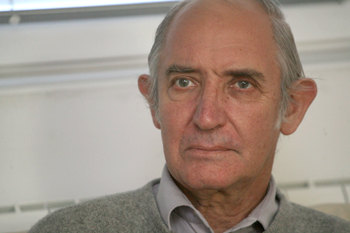A team of scientists has managed to produce electricity from hydrogen sulphide in the Black Sea. The discovery gives hope to inventors in search of new and environmentally friendly sources of energy. Hydrogen sulphide that is present in the Black Sea does not allow for life to exist in 90% of its waters, but it can still be valuable as a renewable energy source with great benefits to the economy. This is what prof. Venko Beshkov from the Institute of Chemical Engineering in Sofia, who led the experiments, says. The project involves also scientists from the Institute of Oceanology at BAS, as well as scientists from Georgia and Romania. According to prof. Beshkov, there were some 4.5 billion tons of hydrogen sulphide in the Black Sea, which could produce around 10-12 TWh annually. Calculations show the quantity of hydrogen sulphide formed in the sea for a year is 10 times more than the amount of natural gas Bulgaria buys. "There will be no greenhouse gas emissions in processing of water from the sea," Professor Beshkov explains and adds:
 "The idea is to transform energy from the deep waters of the Black Sea into electricity. We have developed an original fuel cell design, which allows for the use of hydrogen sulphide and oxygen from the air for the production of electricity. The idea of the processing technology belongs to us and the institute has been working on it for four years. During experiments the probes of the ‘Academic’ ship reached a depth of 1000 meters, where the concentration of hydrogen sulphide is high enough. We found out that by pumping out water from the deep sea we actually get much better results in comparison to laboratory experiments. There exist similar earlier experiments conducted by Bulgarian and Russian scientists for producing energy from seawater. The experiments then aimed at decomposition of hydrogen sulphide. However, this led to a large amount of energy used and lots of waste. In our work, the energy consumption is much lower than the energy we finally receive. Now the aim is to reach high powers of produced electricity, which would create practical interest among potential investors. Our work continues and we aim to improve the reliability of materials and mechanisms used in the fuel cell, in order for it to be more suitable for practical application. I do not want to make predictions about the future, but in a year or two we would have an electricity-producing facility located in the sea. The goal is to connect it to the national electricity grid and hopefully after proving successful, our project would attract serious investors. Currently, we enjoy the support and interest among fellow scientists. They closely follow the development of our project.”
"The idea is to transform energy from the deep waters of the Black Sea into electricity. We have developed an original fuel cell design, which allows for the use of hydrogen sulphide and oxygen from the air for the production of electricity. The idea of the processing technology belongs to us and the institute has been working on it for four years. During experiments the probes of the ‘Academic’ ship reached a depth of 1000 meters, where the concentration of hydrogen sulphide is high enough. We found out that by pumping out water from the deep sea we actually get much better results in comparison to laboratory experiments. There exist similar earlier experiments conducted by Bulgarian and Russian scientists for producing energy from seawater. The experiments then aimed at decomposition of hydrogen sulphide. However, this led to a large amount of energy used and lots of waste. In our work, the energy consumption is much lower than the energy we finally receive. Now the aim is to reach high powers of produced electricity, which would create practical interest among potential investors. Our work continues and we aim to improve the reliability of materials and mechanisms used in the fuel cell, in order for it to be more suitable for practical application. I do not want to make predictions about the future, but in a year or two we would have an electricity-producing facility located in the sea. The goal is to connect it to the national electricity grid and hopefully after proving successful, our project would attract serious investors. Currently, we enjoy the support and interest among fellow scientists. They closely follow the development of our project.”
English version: Alexander Markov
In the era of increased digitalization and the penetration of artificial intelligence into all spheres of our lives, the professions of people with high qualifications and higher pay are most at risk of extinction. The least affected are jobs that..
Prayer served by His Holiness Bulgarian Patriarch Daniil on February 22, marks the beginning of the celebrations for the consecration of the new church "St. John of Rila" of the Bulgarian Orthodox community in London. For the..
"Thracians, Wine and Culture" is the theme of a seminar at the archaeological complex "Valley of the Thracian Kings" near Kazanlak , which brings together scholars and researchers from all over Bulgaria on February 22. This is the ninth edition of..
21 February is International Mother Language Day, first proclaimed as such by UNESCO and later adopted by the UN General Assembly. The right to..
Prayer served by His Holiness Bulgarian Patriarch Daniil on February 22, marks the beginning of the celebrations for the consecration of..
"Thracians, Wine and Culture" is the theme of a seminar at the archaeological complex "Valley of the Thracian Kings" near Kazanlak , which brings..

+359 2 9336 661
